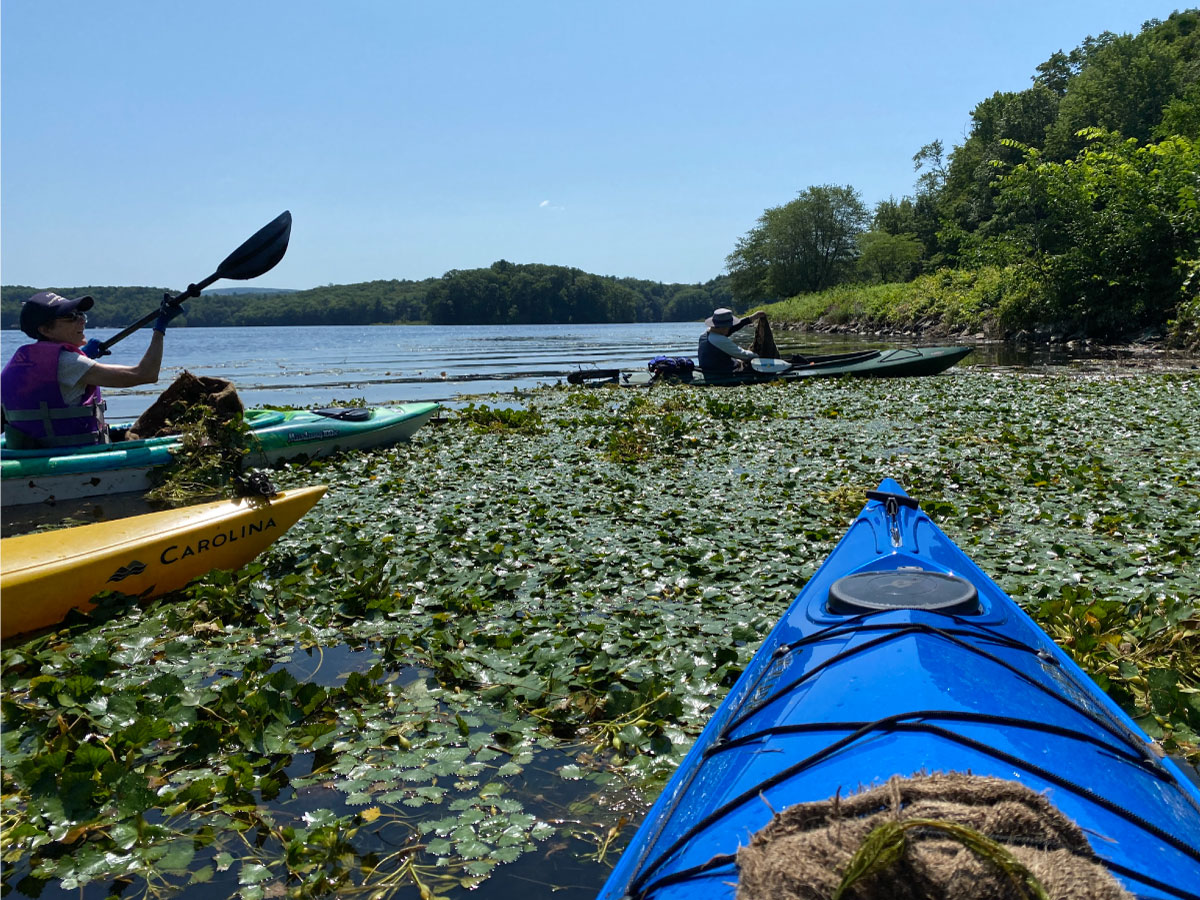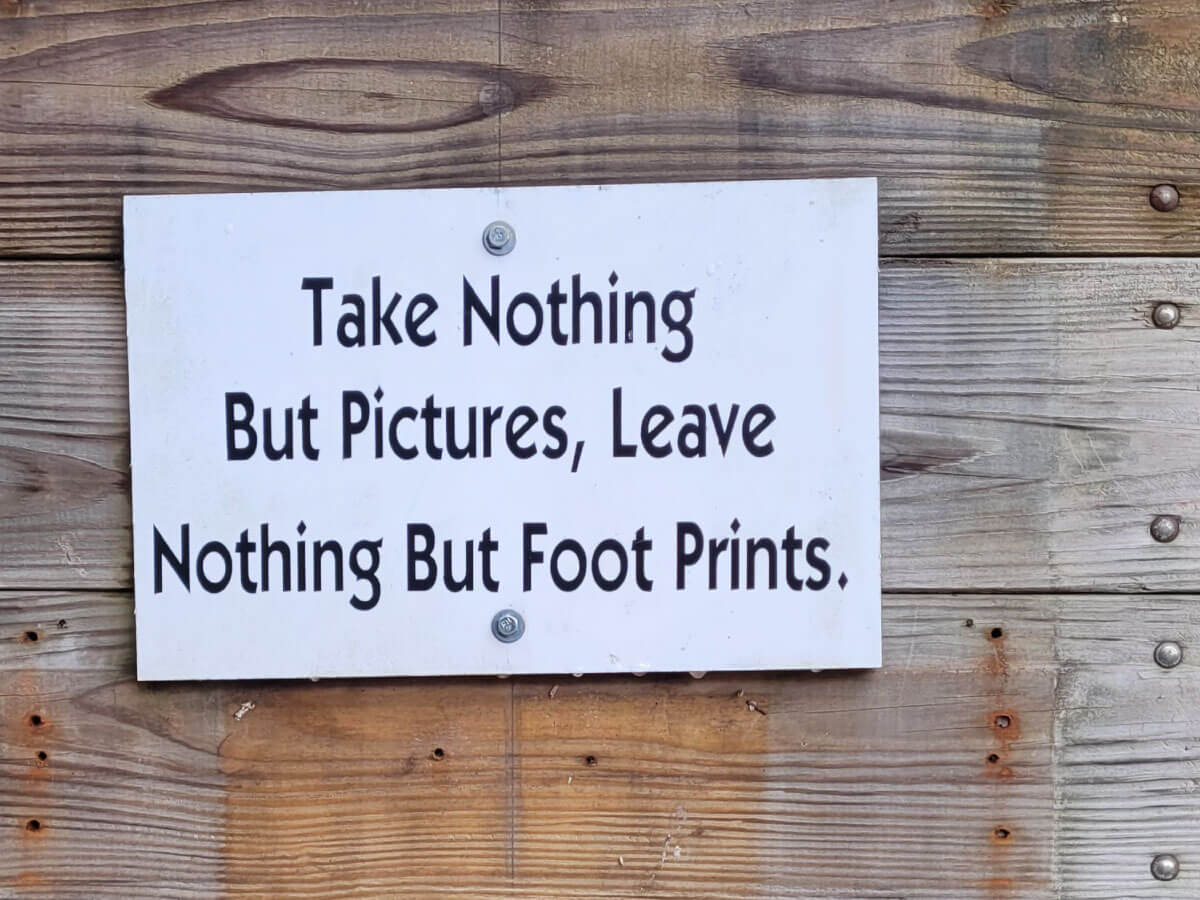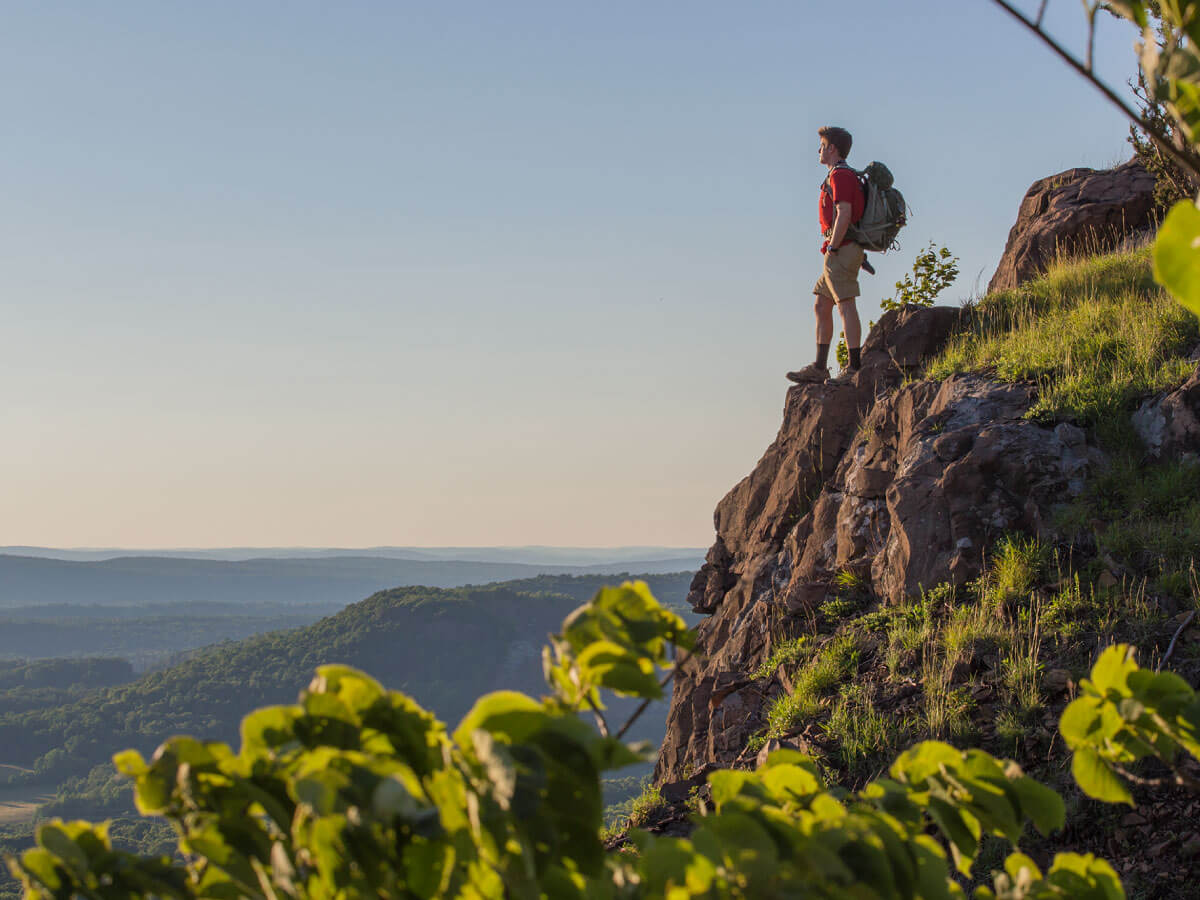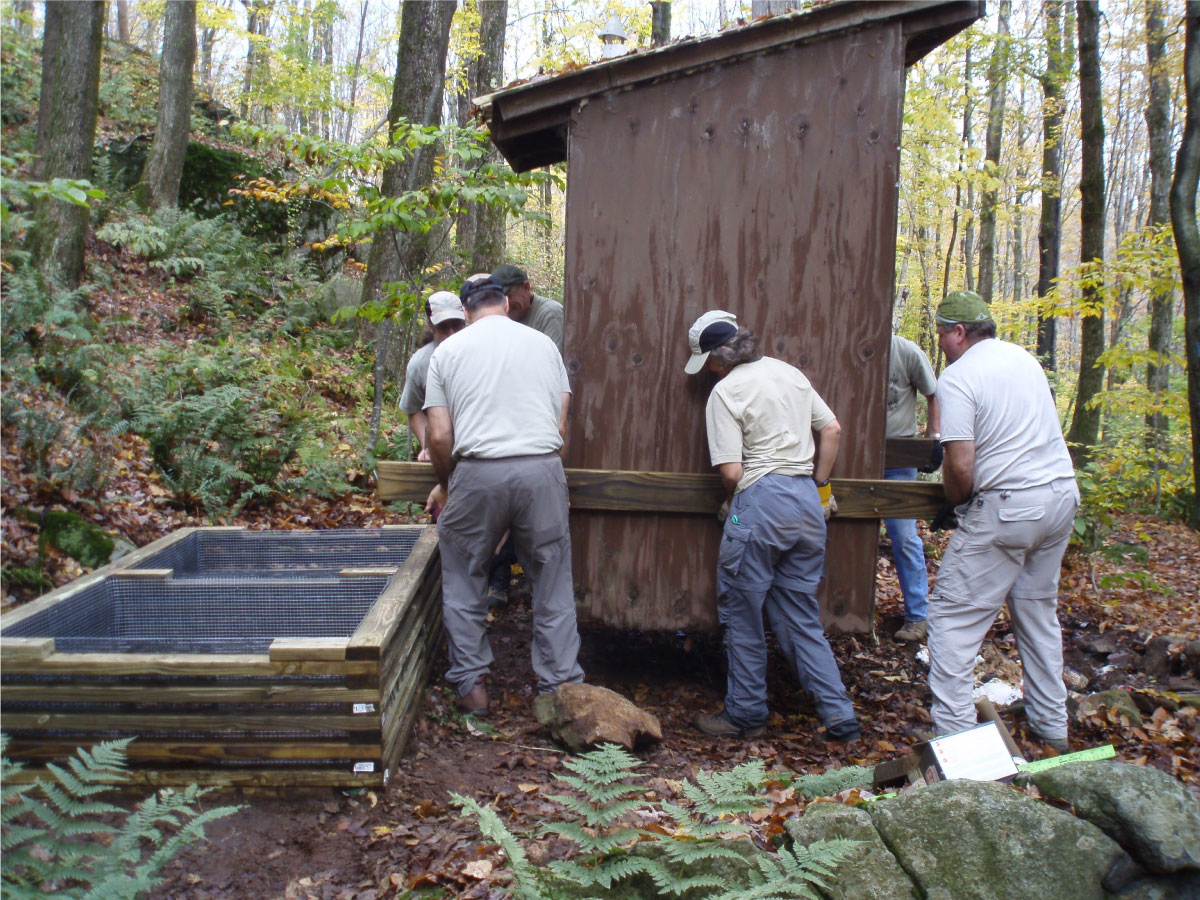[12‑Oct‑2025] Join us for AMC's 4th annual See The Dark Festival - a full week of dark-sky immersion in AMC's breathtaking International Dark Sky Park. Set against the backdrop of peak fall foliage, this flagship event features nightly telescope sessions, astronomy talks, nature-inspired art and journaling workshops, conservation panels, and daytime adventures like hiking, gravel biking, and paddling.
Committee Highlights
Highlights are sorted by date added to the database. Scroll to see all.
Family Programs Committee »
May StoryWalk®. This month's StoryWalk
® is "Fairy Houses" by Tracy Kane. In this story, the main character, Kristen, is in for a surprise when she sets out to build a fairy house in the woods.
Hiking Committee »
A.T. Hike Series. Have you ever dreamed of hiking the entire Appalachian Trail – all 2,197.4 miles, 5 million steps, and 14 states of it – from Georgia to Maine? Join us this summer and early fall for an exciting and challenging hiking series covering the 90 miles of the A.T. in Massachusetts.
Membership Committee »
Picture Us! New this month is the Membership Committee's photo album!
READ MORE » Executive Committee »
Open Committee Positions. Share your love of the outdoors and inspire others! We have several openings on the Executive and AT Management Committees just waiting for you!
Communications Committee »
Bill Fogel is Appie of the Year. Bill Fogel received the Appie of the Year award at Friday's Annual Meeting and Celebration. The Appie of the Year award recognizes outstanding sustained commitment in service.
Bicycling Committee »
Massachusetts Ranks #1 in Bicycle Friendly State Report Card. Did you know that
Massachusetts ranked #1 in the country in the 2022 Bicycle Friendly State Report Card? The League of American Bicyclists gave MA a grade of "A" for infrastructure and funding, education and encouragement, and policies and programs.
NET Committee »
Walking the NET in the Pioneer Valley. Join Patrick Henry, NET Section 5 Trail Adopter, as he walks the New England Trail (NET) - now a national scenic trail - in the Pioneer Valley.
READ MORE » Conservation Committee »
200 Acres Along the NET Conserved. Trust for Public Land, in partnership with the National Park Service and U.S. Fish and Wildlife Service, announces the conservation of 200 acres along the New England National Scenic Trail (NET) in Southwick, MA.
READ MORE » A.T. Management Committee »
Did You Know? The 250,000-acre corridor of the Appalachian Trail (A.T.) and its surrounding landscape are rich in natural and cultural resources. The Western MA A.T. Management Committee runs a robust program to catalog, monitor, and manage these resources on A.T. land in our state.
READ MORE » Mountaineering Committee »
MA Climbers Win Big at Farley Ledges. With Access Fund's support, the Western Massachusetts Climbers' Coalition has secured permanent conservation protection for Farley Ledges and Rose Ledge. The victory is another reminder that when climbing access is threatened, local climbing organizations are often the first and best line of defense.
READ MORE » Paddling Committee »
The Women of Paddling. The Western MA Chapter is blessed to have strong female leaders within its volunteer ranks. These women lead and participate in paddling trips all over the world, from Maine's Allagash River to the Connecticut River and north to Canada.
READ MORE »












